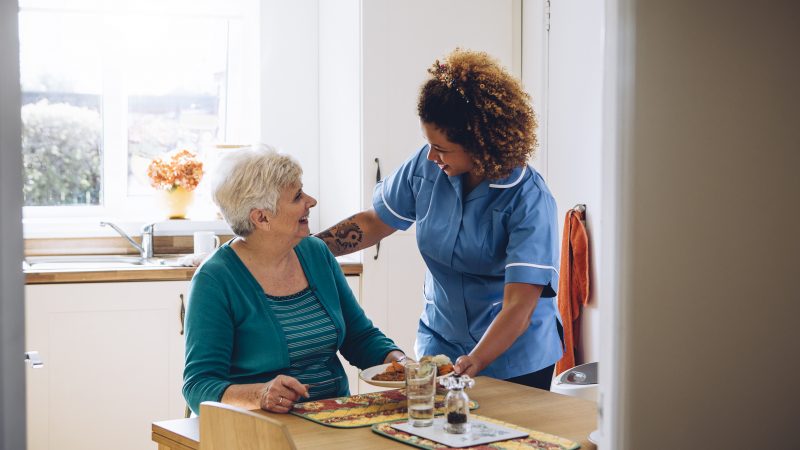
During lockdown, as many were getting used to working from home, care workers continued to serve their clients. While looking after the most vulnerable, they faced uncertainty over access to personal protective equipment, testing and job security. And yet the government was slow to act to support those working in care – a group that comprises a disproportionate number of Black Asian and minority ethnic workers. It failed to increase statutory sick pay and to properly fund local authorities that coordinate care. Care workers have been abandoned. This year’s Comprehensive Spending Review is a moment to put that right.
One in five care workers are from our BAME communities, and so, with the disproportionate impact of Covid-19, put themselves at risk in order to work. UNISON reported earlier in the crisis that 72% of all the health and social care workers who had died from Covid-19 at that point were Black. But local authorities are only now starting to receive the full ethnicity data for positive test results, which is key for an effective local response.
It is an outrage that the government has not increased statutory sick pay for workers having to self-isolate – not least because self-isolating is part of a collective public health response that keeps us all safe. As Andy Burnham has argued, self-isolating should be treated like jury service with financial support in place to do the right thing. This glaring gap in social security has forced workers to fight, and GMB has had to campaign to secure full and normal pay for self-isolating care staff. The union was successful in the case of Larchwood Care. Nine in ten care workers are women, many of whom will already have unpaid caring responsibilities, and women already experience the gender pay gap.
The pay settlement announced by the Chancellor last month overlooked care workers, who are dependent on a decent funding settlement for local government for a decent pay rise. While announcing that 900,000 workers would receive a pay rise, Rishi Sunak sidestepped the issue of care worker pay. Hiding behind the shameful, bad faith argument that many care workers are paid by private companies, Kit Malthouse MP, minister for policing and crime, suggested that government is limited in what it can do to influence pay. He is wrong. Paying care workers is quite clearly a government responsibility.
Now is the moment to act on the long-held, cross-party understanding that our care system needs long-term and systemic reform. For too long now, service users, grassroots and policy campaigners, trade unions and ministers from each of the main parties have said that the care system needs reform. Frontline workers from local authorities, health services and the community have been working in partnership throughout the pandemic to protect people, overcoming appalling fragmentation within the service structures. I’m proud of the local innovation in Tower Hamlets, which has established care navigators to help people establish and sustain meaningful care support, but we need to collectively reflect on a system that has become so complicated that it requires ‘navigation’.
At the heart of an effective care system are relationships between people, their families and the people who care for them. Beyond the outstanding work in primary care, NHS management structures remain heavily centralised and focused on institutions, not people or places. Now is the moment to put people at the heart of a compassionate care service that is grounded in local authorities. It is only at a local level that care workers can establish the relationships needed for truly nurturing care – where they can support individuals to be part of a local community.
To really support care workers, the government must properly fund local authorities. Local government has experienced a sustained attack on its finances for the last ten years, and social care has suffered as a result. Allowing councils to add a social care precept to council tax has pushed the problem down the road and not raised the funding needed. Services that were previously free at the point of use are now charged for, despite the fact that many of these services are preventing a hospital or primary care intervention, which would be free at the point of use. Ten years of cuts has seen £7.7bn taken from adult social care budgets. It is wrong that costs should be covered by those who have already paid into the system, and yet local authorities are forced to charge for more services just to balance budgets. This Comprehensive Spending Review must address the appalling budget challenges local authorities face: assess local needs and allocate funds to reflect those needs.
Supporting people to live in their own homes is good for their physical and mental health, enabling them to remain part of their local community. Care workers play a vital role in our health system but also in our economy. Making 2020 the year to reset pay for care workers would be a decent response to honour their tireless hard work, and the start of genuine long-term reform of care services.




More from LabourList
‘Labour council candidates – it’s tough, but all is not lost’
‘Labour won’t stop the far right by changing leaders — only by proving what the left can deliver’
‘Cutting Welsh university funding would be economic vandalism, not reform’